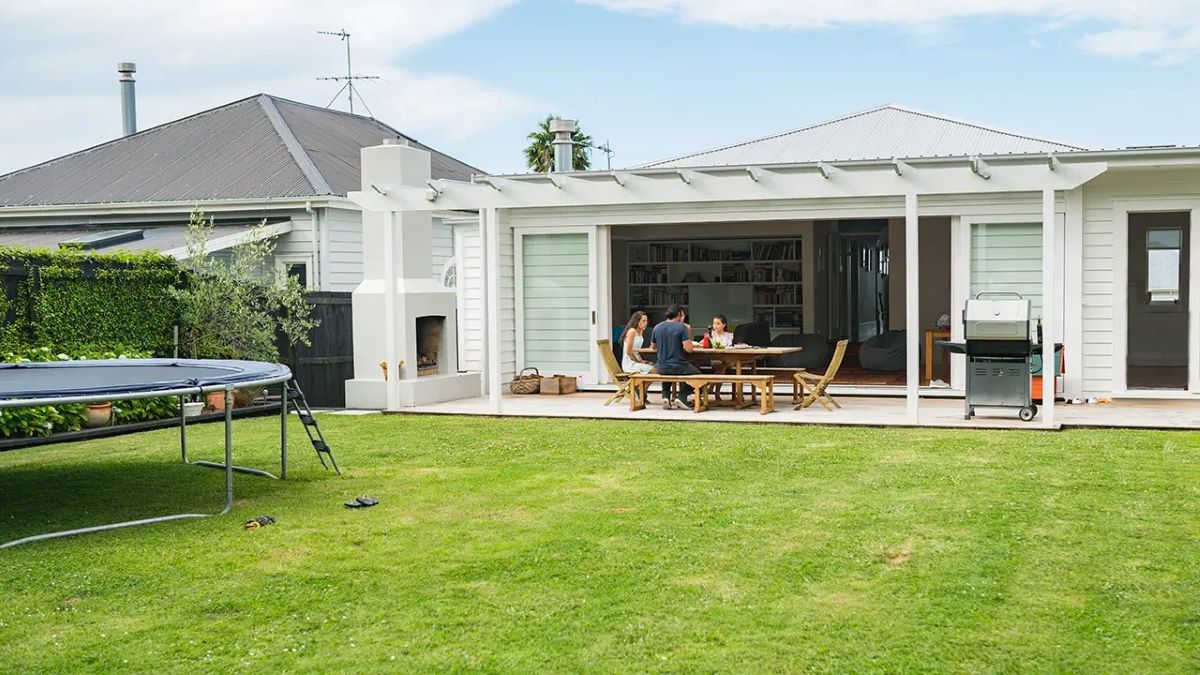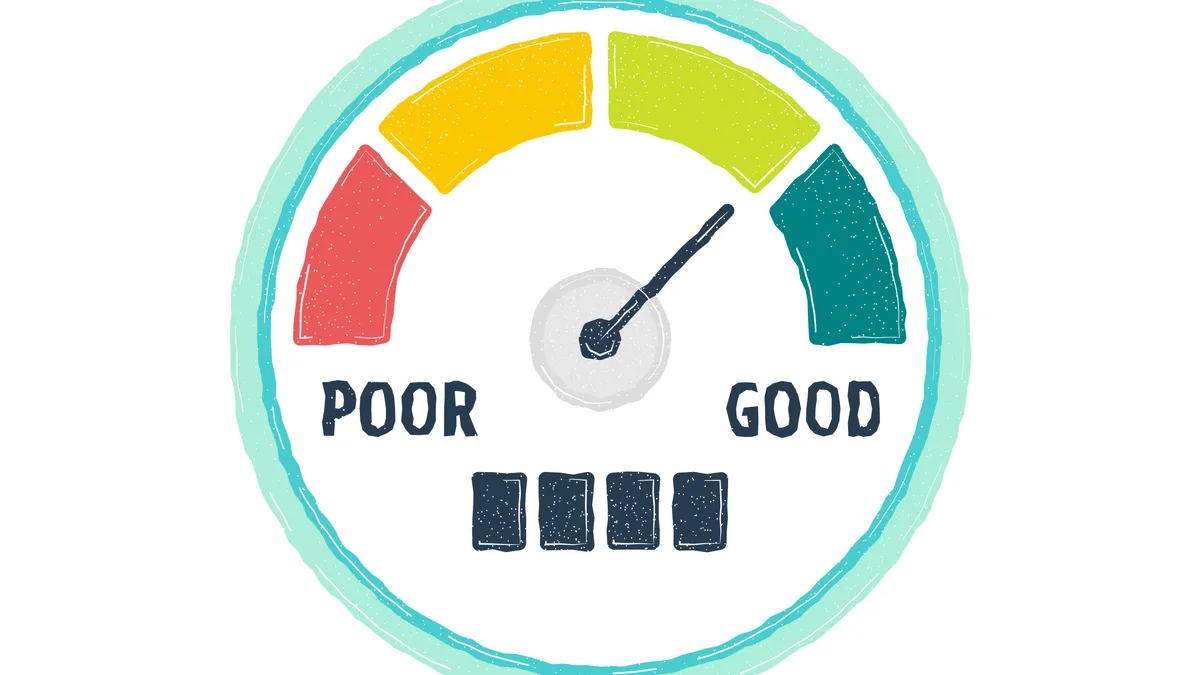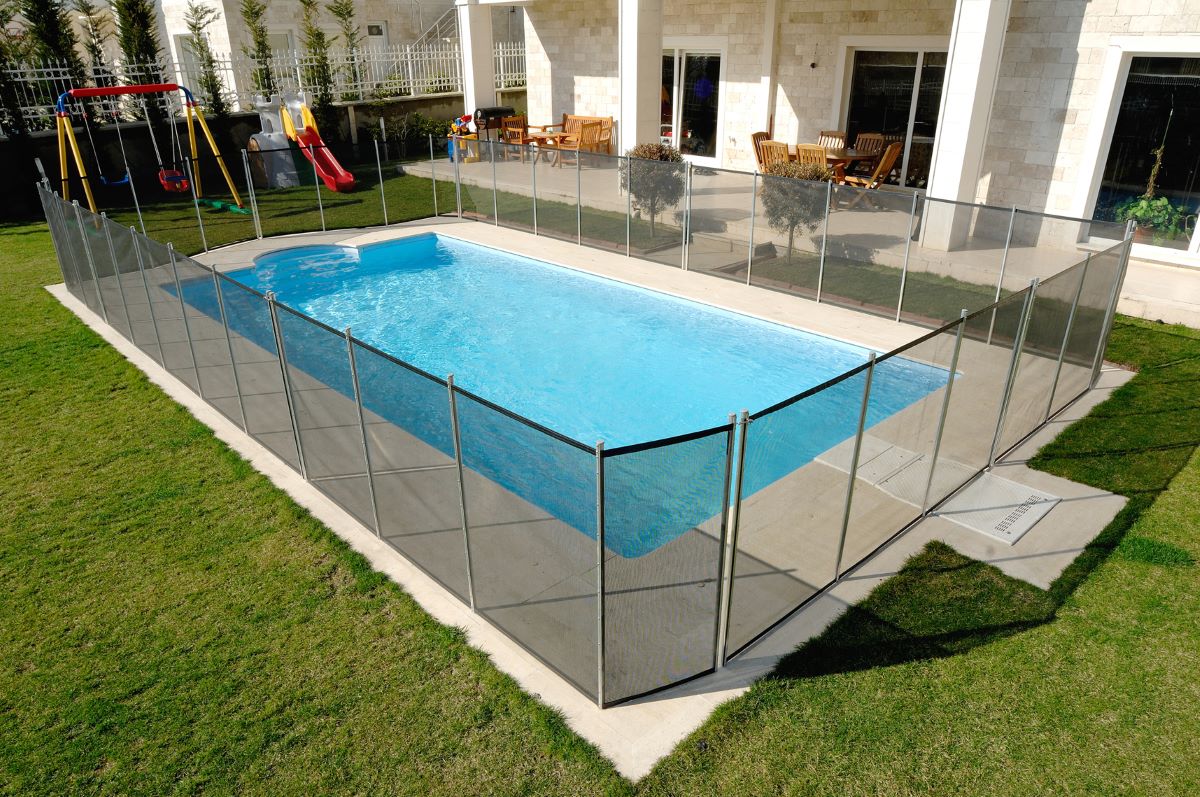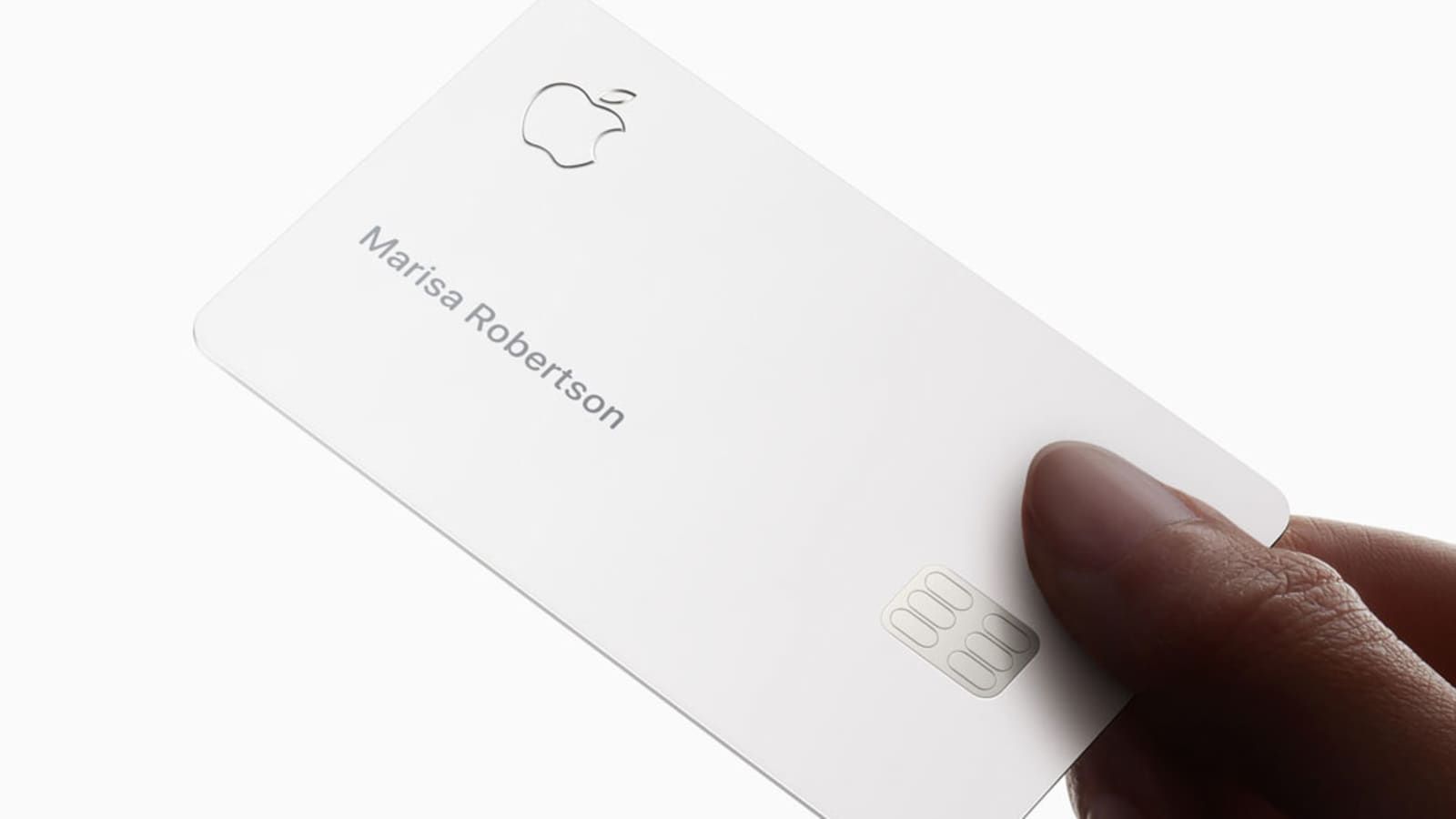

Finance
How Much Does A Pool Raise Your Insurance?
Published: November 14, 2023
Find out how owning a pool can affect your insurance rates. Discover the financial impact of having a pool and make informed decisions for your coverage.
(Many of the links in this article redirect to a specific reviewed product. Your purchase of these products through affiliate links helps to generate commission for LiveWell, at no extra cost. Learn more)
Table of Contents
Introduction
Having a swimming pool in your backyard is a dream for many homeowners. It provides a fun and relaxing space for family and friends to enjoy during hot summer months. However, it’s important to consider the financial implications of owning a pool, particularly when it comes to insurance.
A swimming pool can have a significant impact on your homeowners insurance premiums. Insurance providers consider pools as an added risk factor due to various factors like potential injuries, accidents, or property damage associated with pool usage. Understanding how much having a pool can raise your insurance is crucial for budgeting and making informed decisions as a homeowner.
In this article, we will explore the factors that affect insurance premiums related to pool ownership, provide a breakdown of pool-related insurance costs, discuss the impact of pool size and type on insurance rates, and offer tips on reducing pool-related insurance premiums.
By the end of this article, you will have a better understanding of the financial implications of owning a pool and the steps you can take to manage your insurance costs.
Factors Affecting Insurance Premiums
Several factors influence the insurance premiums associated with pool ownership. Insurance providers assess these factors to determine the level of risk associated with your pool, which affects the cost of coverage. Let’s explore these factors in more detail:
- Pool Size and Type: The size and type of pool you have can impact your insurance premiums. In-ground pools typically have higher insurance costs compared to above-ground pools due to their increased risk of accidents and injuries. Additionally, larger pools may pose a higher risk than smaller ones, leading to higher premiums.
- Location: Your geographical location can affect your insurance premiums. If you live in an area prone to natural disasters, such as hurricanes or earthquakes, your insurance costs may be higher to account for the increased risk of damage to your pool and property.
- Safety Features: The presence of safety features such as pool fences, gates, and alarms can help lower your insurance premiums. These features reduce the risk of accidents and injuries, making your pool a safer environment for both residents and visitors.
- Local Regulations: Some local jurisdictions have specific requirements for pool owners, such as the installation of safety measures. If you fail to meet these regulations, it may result in higher insurance premiums or even denial of coverage.
- Claims History: Your insurance claims history plays a role in determining your premiums. If you have a history of pool-related claims, such as injuries or property damage, insurers may consider you a higher risk and charge higher premiums accordingly.
- Personal Liability Coverage: Pool ownership typically requires higher personal liability coverage to protect against potential lawsuits resulting from accidents or injuries that occur in or around your pool. This increased coverage can result in higher insurance premiums.
It’s essential to keep these factors in mind when considering pool ownership. Understanding how they impact your insurance costs will help you make informed decisions and ensure that you have adequate coverage for your pool.
Breakdown of Pool-Related Insurance Costs
When it comes to pool-related insurance costs, there are several components to consider. Let’s break down these costs to understand the different aspects of insurance coverage for your pool:
- Property Damage Coverage: Insurance policies typically include coverage for property damage caused by covered perils such as storms, fires, or vandalism. This coverage encompasses the pool structure, equipment, and surrounding landscaping. It’s crucial to ensure that the coverage limit is sufficient to cover the cost of repairing or replacing your pool in case of damage.
- Liability Coverage: Liability insurance is essential for pool owners. It provides coverage in the event that someone is injured or their property is damaged while using your pool. Medical expenses, legal fees, and potential settlements or judgments can be financially devastating without proper liability coverage.
- Additional Structures: If you have additional structures associated with your pool, such as a pool house or cabana, it’s important to consider insurance coverage for these structures separately. They may require additional coverage beyond what is provided for the main dwelling.
- Pool Equipment: The equipment used to operate and maintain your pool, such as pumps, filters, and heaters, may also be covered under your insurance policy. It’s important to review your coverage to ensure that these items are adequately protected.
- Personal Property: If you store pool-related items or equipment, such as pool toys, furniture, or accessories, in an outbuilding or shed, these may be covered under your personal property coverage. However, it’s crucial to check your policy to determine the extent of coverage for personal property.
- Increased Living Expenses: In the event that your pool becomes unusable due to covered damage, your insurance policy may provide coverage for alternate living arrangements or additional expenses incurred during the repair or replacement of your pool.
It’s important to review your insurance policy in detail to understand the specific coverage provided for your pool and associated costs. Working with an insurance agent experienced in pool-related coverage can help ensure that you have adequate protection for all aspects of your pool.
Impact of Pool Size and Type on Insurance Rates
When it comes to insurance rates for pools, both the size and type of pool you have can significantly impact your premiums. Insurance providers consider these factors when assessing the risk associated with your pool. Let’s explore how pool size and type can affect your insurance rates:
Pool Size:
The size of your pool plays a role in determining your insurance rates. Generally, larger pools present a higher risk than smaller ones. Larger pools may have a higher likelihood of accidents or injuries due to the increased space and number of people using the pool. The larger the pool, the higher the potential for property damage as well. As a result, insurance premiums for larger pools tend to be higher than for smaller pools.
Pool Type:
Insurance rates can also vary based on the type of pool you have. In-ground pools typically have higher insurance costs compared to above-ground pools. In-ground pools are typically larger and more permanent structures, making them more susceptible to damage and presenting a higher risk. The construction and location of in-ground pools can also affect premiums. Additionally, pools with unique features and complex designs may have higher insurance rates due to the increased cost of repairs and replacements.
Other Factors:
While size and type play a significant role, it’s important to note that other factors such as safety features, local regulations, and claims history can also influence your insurance rates. Implementing safety measures such as pool fences, gates, and alarms can help mitigate risks and potentially lower your premiums. Local regulations may require specific safety measures to be in place, and failure to comply can result in higher insurance costs. Your insurance claims history can also impact rates, as a history of pool-related claims may deem you a higher risk.
It’s crucial to discuss the size and type of your pool with your insurance agent to determine the specific impact on your premiums. Your agent can provide insights into the risk assessment process and help you understand how to manage your insurance costs while enjoying your pool.
Additional Coverage Options for Pool Owners
As a pool owner, it’s important to explore additional coverage options beyond your standard homeowners insurance policy to ensure comprehensive protection. While your homeowners insurance may cover certain aspects of your pool, there are specific coverage options designed to address the unique risks associated with pool ownership. Here are some additional coverage options to consider:
- Umbrella Liability Insurance: Umbrella liability insurance provides an extra layer of liability coverage beyond the limits of your standard homeowners policy. It can offer increased protection for potential lawsuits resulting from accidents or injuries that occur in or around your pool. Umbrella policies typically offer higher coverage limits and can provide peace of mind for pool owners.
- Equipment Breakdown Coverage: Pool equipment such as pumps, heaters, and filtration systems can be susceptible to mechanical breakdown. Equipment breakdown coverage can help cover the cost of repairs or replacements in the event of such failures. This coverage can be particularly valuable for pool owners who rely on their equipment for regular pool maintenance and operation.
- Flood Insurance: Standard homeowners insurance policies typically do not cover damages caused by flooding, including flooding that affects your pool. If you live in a flood-prone area, it is essential to consider obtaining separate flood insurance to protect your pool and property from flood-related damages.
- Service Line Coverage: Service line coverage provides protection for underground pipes and utility lines, including those used for your pool. If there is damage to these lines, such as a leak or breakage, service line coverage can help cover the cost of repairs. This coverage can be valuable for pool owners who rely on underground plumbing and utilities for their pools.
- Pollution Liability Coverage: Pools require regular maintenance, which often involves the use of chemicals for water treatment. Pollution liability coverage can provide protection in the event of accidental chemical spills or leaks that may cause harm to the environment or neighboring properties. This coverage is particularly important for pool owners who handle pool chemicals themselves.
- Personal Property Enhancement: Consider adding personal property enhancement coverage to your policy to cover the cost of replacing pool-related items, such as pool toys, furniture, and accessories, in the event of theft, damage, or loss. This can provide added peace of mind knowing that your pool amenities are protected.
Discuss these additional coverage options with your insurance provider to determine the most suitable choices for your pool. They can help you assess your specific needs as a pool owner and tailor a coverage plan that provides optimal protection for your pool and its associated risks.
Tips for Reducing Pool-Related Insurance Premiums
While owning a pool may increase your homeowners insurance premiums, there are several strategies you can implement to help lower the cost of insuring your pool. By taking proactive measures to mitigate risks and demonstrate responsible pool ownership, you may be able to reduce your pool-related insurance premiums. Here are some tips to consider:
- Install Safety Measures: Implementing safety features such as pool fences, gates, and alarms can significantly reduce the risk of accidents and injuries. Insurance providers often offer discounts for homes with these safety measures in place. Ensure that your safety measures meet local regulations and standards.
- Maintain Proper Maintenance and Care: Regularly inspect and maintain your pool to prevent issues that could lead to damage or accidents. Keep your pool clean, test and balance water chemistry, and address any repairs or maintenance needs promptly. Demonstrating responsible pool maintenance can help reduce your insurance premiums.
- Upgrade Security Systems: Consider installing a security system that includes surveillance cameras and motion sensors around your pool area. Advanced security systems can help deter theft and vandalism, potentially resulting in lower insurance premiums.
- Bundle Policies: If you have multiple insurance policies, such as auto and homeowners insurance, consider bundling them with the same insurance provider. Many insurers offer multi-policy discounts, which can lead to significant savings on your overall insurance costs.
- Shop Around for the Best Rates: Don’t settle for the first insurance quote you receive. Take the time to shop around and compare rates from different insurers. Obtain multiple quotes and consider factors such as coverage, deductible, and customer reviews before making a decision.
- Review Coverage Limits: Periodically review your coverage limits to ensure they align with your actual needs. Assess the value of your pool and pool-related assets to make sure you are neither underinsured nor overinsured. Adjusting coverage limits accordingly can help optimize your premiums.
- Consider a Higher Deductible: Increasing your deductible can lower your insurance premiums. However, be sure to choose a deductible that you can comfortably afford in the event of a claim.
- Maintain a Positive Claims History: Avoid making unnecessary claims and strive to maintain a positive claims history. This can help establish a track record of responsible and low-risk behavior, potentially resulting in lower insurance premiums.
Remember, it’s important to consult with your insurance provider and discuss these tips with them. They can provide personalized advice based on your specific coverage and circumstances. By implementing these strategies, you can proactively manage your pool-related insurance costs and enjoy your pool with peace of mind.
Conclusion
As a homeowner, it’s essential to thoroughly consider the financial implications of owning a pool, including the impact on your insurance premiums. Understanding how much a pool can raise your insurance and learning about the factors involved allows you to make informed decisions and manage your insurance costs effectively.
In this article, we discussed the various factors that affect insurance premiums related to pool ownership, such as pool size, location, safety features, local regulations, and claims history. We also explored the breakdown of pool-related insurance costs, including property damage coverage, liability coverage, and coverage for equipment and personal property.
Additionally, we discussed the influence of pool size and type on insurance rates and emphasized the importance of considering additional coverage options specific to pool ownership, such as umbrella liability insurance, equipment breakdown coverage, and flood insurance.
To help reduce pool-related insurance premiums, we provided practical tips, including installing safety measures, maintaining proper maintenance and care, upgrading security systems, bundling policies, shopping around for the best rates, reviewing coverage limits, considering a higher deductible, and maintaining a positive claims history.
By implementing these tips and working closely with your insurance provider, you can take proactive measures to manage your insurance costs while enjoying the benefits of pool ownership.
Remember, it’s important to regularly review your insurance policy and coverage with your provider to ensure that it aligns with your changing needs as a pool owner. Stay informed, prioritize safety, and take the necessary steps to protect your pool and your financial well-being.














